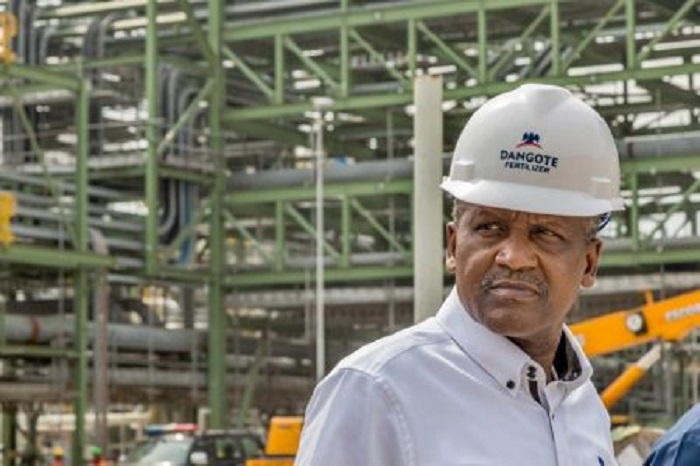FACT CHECK: Is Dangote refinery due for commissioning Jan 24?
A Twitter user, Mohammed Jammal, posted on his Twitter handle that the Dangote refinery will be commissioned on January 24, 2023. The tweet, which gathered over 81,000 views, over 500 Likes and retweets, before it was deleted, was circulated by online blogs and some news media. The tweet reads, “Aliko Dangote’s $19 billion refinery to […]

Aliko Dangote
A Twitter user, Mohammed Jammal, posted on his Twitter handle that the Dangote refinery will be commissioned on January 24, 2023.
The tweet, which gathered over 81,000 views, over 500 Likes and retweets, before it was deleted, was circulated by online blogs and some news media.
The tweet reads, “Aliko Dangote’s $19 billion refinery to be commissioned on January 24, 2023.”
Also, a reputable paper (not Daily Trust) reported the same story, saying the refinery is slated for commissioning on the same day.
FACT CHECK: Did PDP pay N95m for campaign venue in Rivers?
Verification
Checks by Daily Trust has shown that there is no official announcement by the Dangote Group on the commissioning.
It only announced that the 650,000 barrel per day refinery would be commissioned before the end of the first quarter of 2023.
Also, the Group head of Corporate Communications at the Dangote group, Anthony Chiejina, told Daily Trust that the reports making the rounds is not true
He said, “The Dangote petrochemical refinery will be commissioned when all arrangements are concluded and a formal announcement will be made to that regard.”
He added that the general public should discard the reports making the rounds.
Verdict: False
About the Dangote refinery
The Dangote integrated refinery and petrochemical complex in the Lekki Free Zone in Lagos, has a capacity to refine 650,000 barrels of crude oil per day.
the refinery, according to the Group, will also produce Euro-V quality gasoline and diesel, as well as jet fuel and polypropylene is expected to generate 4,000 direct and 145,000 indirect jobs.
It is expected to double Nigeria’s refining capacity and help in meeting the increasing demand for refined petroleum products while providing cost and foreign exchange savings.
It is estimated to have an annual refining capacity of 10.4 million tonnes of petrol.
According to the World Bank, the refinery is expected to boost Nigeria’s external earnings by drastically reducing imports of fuel, contributing to the regional supply of petroleum products.
The majority of the crude for the refinery operations is expected to come from Nigeria, given that the Nigerian National Petroleum Company Limited (NNPC) holds a 20 percent stake in the company on behalf of the federation, but the declining crude output would present a challenge.
The NNPC said it would supply half of the crude required by the plant.
Analysts also believe that when the refinery comes onboard, it will minimally reduce the burden of imports and strengthen Nigeria’s local currency.
